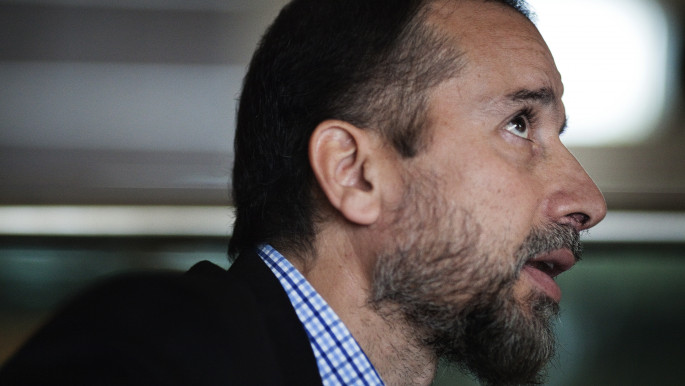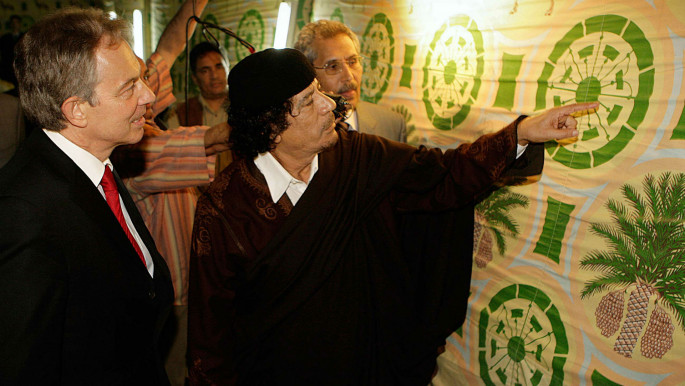MI6 washing hands clean of Libya torture allegations
British prosecuters announced on Thursday that there will be no charges for MI6 officers following an investigation into the intelligence service's alleged involvement in the kidnapping and rendition of two Libyan families to prisons under deceased Libyan dictator Muammar Gaddafi.
This follows a four year investigation into claims made by former Libyan dissident Abdelhakim Belhaj and Sami al-Saadi, who said that British intelligence was complicit in their kidnapping from Thailand in 2004 that resulted in their subsequent torture and detention in Libya.
"Following a thorough investigation, the CPS has decided that there is insufficient evidence to charge the suspect with any criminal offence," said Sue Hemming of the Crown Prosecution Service.
"We made our decision based upon all the available admissible evidence and after weighing up all of the information we have been provided with."
Involved but not guilty
The CPS did concede that a British official was in contact with foreign agents responsible for the seizure of the two men and their families in Asia and their transfer to Libya.
 |
|
| Sami al-Saadi, along with Belhaj, brought claims against the British government [AFP] |
It "remains unclear what impact or influence" the Briton's involvement had, prosecutors said in a statement.
Belhaj, now of Libya's Islamist al-Watan Party, spoke in an interview with BBC News where he conveyed his disappointment at the decision.
"I'm very disappointed that individuals responsible will not be prosecuted," the former political dissident said.
"If there is political interference in the courts, then it undermines British justice," he continued.
'Clear evidence'
Thursday's announcement has come as a surprise to many, as evidence of British complicity in the illegal renditions emerged in 2011 after the Nato bombardment forced the Gaddafi regime to flee, leaving behind classified documents.
Among the documents discovered was a letter from MI6's chief of counter-terrorism operations at the time, Sir Mark Allen, written to Gadaffi's spymaster Moussa Koussa in 2004.
In the correspondence, which British investigators said was signed by "Mark", Koussa received Britain's role in the operation was lauded and the Gadaffi regime congratulated.
"More importantly, I congratulate you on the safe arrival of Abu Abd Allah Sadiq (Mr Belhaj)...This was the least we could do for you and for Libya to demonstrate the remarkable relationship we have built over the years," the letter read.
At the time, relations between London and Tripoli were warming, marked by Tony Blair and Gaddafi's famous "deal in the desert" bringing the Libyan leader in from the cold in 2007.
 |
| Tony Blair and Muammar Gaddafi during the pair's famous "deal in the desert" in 2007 [AFP] |
Fighting on
Cori Crider, a lawyer for campaign group Reprieve who is representing the Libyans, said they would fight the case.
"With today's official acknowledgement that British officials were involved in this rendition, the fig leaf of official secrecy in this case is in tatters," she said.
"There is one crucial question: who knew who was on those planes, and for those who knew, what possible reason can there be for them to evade justice?"
Both Saadi and Belhaj pursued civil claims against the British government and named individuals following the removal of Muammar Gaddafi from power in 2011.
Saadi settled his case out of court after receiving a £2.2 million compensation payment, however Belhaj continued his case in pursuit of prosecutions and an official apology.
The Supreme Court in London is currently considering legal action brought by Belhaj against the British government, after hearings took place in November.





 Follow the Middle East's top stories in English at The New Arab on Google News
Follow the Middle East's top stories in English at The New Arab on Google News
![Israeli forces ordered bombed Gaza's Jabalia, ordering residents to leave [Getty]](/sites/default/files/styles/image_330x185/public/2176418030.jpeg?h=a5f2f23a&itok=_YGZaP1z)

